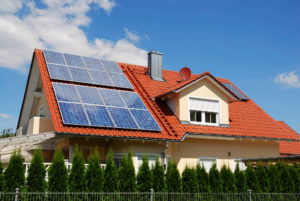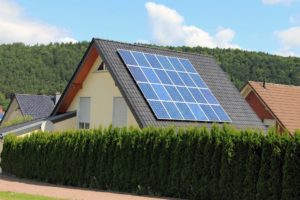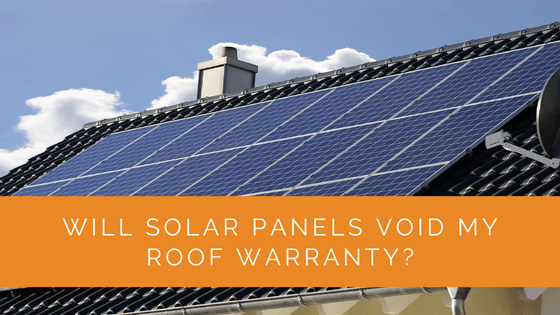The roof of the house is the only thing that can keep weather like rain and snow from getting through to your loved ones inside. This makes it among the most significant purchases you will ever make. Thus, maintaining its condition is crucial.
However, solar panel installation necessitates extensive drilling into the roof and the placement of typically heavy equipment. Will the solar panel installation void your roof’s warranty in this regard?
Here, we’ll review the basics of roof warranties, including what they cover, the different kinds of roofs, and how bad solar system installations might nullify your warranty coverage.
Contents
- 1 Key Takeaways
- 2 Do Solar Panel Systems Void the Warranty?
- 3 Understanding Roof Warranties and What They Entail
- 4 Types of Roofs and Racking Systems
- 5 Impact of Poor Solar Installation on Roof Warranty
- 6 Case Study: Ensuring Roof Warranty Integrity During Solar Panel Installation
- 7 Expert Insights From Our Solar Panel Installers About If Solar Panels Will Void Your Roof Warranty
- 8 Experience Solar Excellence with Us!
- 9 Wrapping Up
Key Takeaways
- Solar panel installation should not void your roof’s warranty as long as it is done according to the specifications provided by your roofing contractor, ensuring that waterproofing and flashing are properly maintained.
- Roof warranties typically consist of two components: a labor warranty provided by the installer and a materials warranty from the manufacturer. The installer’s warranty covers damages resulting from poor installation, while the manufacturer’s warranty covers faulty roofing materials.
- The compatibility of solar panel installation with your roof depends on the type of roofing material, with some roofs being more solar-friendly than others. Metal roofs, for example, are durable and easy to work with when installing solar panels.
Do Solar Panel Systems Void the Warranty?
Usually, no. As long as the solar installer’s solar panel system is mounted as per the specifications provided by your roofing contractor, solar panel installation should not invalidate your roof’s warranty. This should ensure that the terms of the warranty are met.
Waterproofing your roof and flashing are integral to any proper installation since they seal the roof and prevent water from entering the structure. However, solar panel installation shouldn’t be done on a roof that lasts less than ten years. Getting a new roof is often considered the ideal opportunity to install solar panels.

Understanding Roof Warranties and What They Entail
There are typically two components to a roof warranty for the property. The first is the warranty that the installer gives you, which pays for the actual labor involved in getting the roof installed.
The length of this type of warranty is up to the roofing firm that installed your roof, but it often ranges from 8 to 10 years. Therefore, the firm responsible for the installation must pay for any damage to your roof that results from the installation being done incorrectly.
The manufacturer’s warranty on the roofing materials is another component; it may last anywhere from 25 to 50 years, based on the product installed. Consequently, the utility company will replace your faulty roofing material under the manufacturer’s warranties if it can be confirmed that the damages were not the result of poor installation.
Before beginning any roofing work, it is best to clear everything up with the material producer and the roofing contractor. This can help you understand how a solar system installation may influence your warranty.
As solar panels and roof installations are often done simultaneously, it’s a good idea to inquire whether the roofing instructor you’re considering can recommend solar companies. Sometimes, they may even provide solar system installation services themselves.

Types of Roofs and Racking Systems
Attaching solar panels to your roof requires a specific racking system determined by the roofing material.
It’s important to remember that solar panels can last for at least 25 years before they need to be replaced. Following these criteria, several common roofing styles are described below.
Shingle Roof
Concrete or asphalt shingles are typically used while constructing a roof. Installation of panels requires screws that may pierce the roof, flashing to give support, and sealant to prevent water infiltration. Solar panels can be installed more easily on these roofs than on tile roofs.
Tile Roof
Numerous roofs are constructed with tiles made of clay, slate, or terra cotta, which can’t be drilled. Therefore, it is more difficult and has a higher installation cost since the supports must be connected beneath the tiles, and the rooftop deck must always be drilled.
Flat Roofs
Flat roofs often utilize membrane roofing. A slanted ballasted system is utilized to mount the panel on flat rooftops. They have the benefit of being less expensive and requiring no ceiling drilling. Mechanically mounted racking systems are yet another popular option.
Roofs with Standing Seam Metal
Roofs constructed of metal are among the most solar-friendly options because of their durability and low reflectivity. Assembling the panels is quick, easy, and risk-free due to the vertical seams. No holes need to be found in the ceiling, and no waterproofing is required.
Impact of Poor Solar Installation on Roof Warranty
In most circumstances, a solar installation will not void your roof warranty, assuming the installer followed all manufacturers’ instructions. A solar installation can decide to void your roofing warranty due to one of the following ways:
- Negligence during roof repairs, leading to broken tiles or a weakened roof membrane
- Using the wrong fasteners to join the floor to the roof
- Cheap racking system that isn’t well made and lacks essential waterproofing elements
Case Study: Ensuring Roof Warranty Integrity During Solar Panel Installation
Background
At Solar Panels Network USA, we are committed to providing our clients with top-quality solar installations while maintaining the integrity of their roof warranties. One of our recent projects involved installing solar panels on a residential property with concerns about potential impacts on the roof warranty. This case study explores the steps we took to ensure the installation did not void the roof warranty.
Project Overview
A homeowner with a relatively new asphalt shingle roof approached us to install a solar panel system. They were concerned about whether the installation process would void their roof warranty. Our task was to perform the installation while adhering to all warranty conditions specified by the roofing contractor.
Implementation
Understanding Roof Warranties:
We began by educating the homeowner about the two main components of roof warranties:
- Labor Warranty: Provided by the installer, covering damages resulting from poor installation, typically lasting 8 to 10 years.
- Materials Warranty: Provided by the manufacturer, covering faulty roofing materials, with durations ranging from 25 to 50 years.
Coordination with Roofing Contractor:
To ensure compatibility, we coordinated with the roofing contractor to understand the specific requirements and specifications. This collaboration helped us identify the best practices for maintaining the roof’s integrity during the solar panel installation.
Choosing the Right Racking System:
Given the asphalt shingle roof, we selected a racking system that involved minimal penetration and used high-quality flashing and sealant to prevent water infiltration. This choice was crucial for maintaining the waterproofing and structural integrity of the roof.
Installation Process:
Our installation team followed these steps:
- Pre-Installation Inspection: Conducted a thorough inspection of the roof to identify any pre-existing issues that could affect the warranty.
- Racking System Installation: Used specialized equipment to mount the racking system securely while minimizing roof penetrations. Flashing was installed meticulously to ensure waterproof seals around each penetration point.
- Solar Panel Mounting: Mounted the solar panels on the racking system, ensuring they were securely attached without compromising the roof structure.
Post-Installation Coordination:
After completing the installation, we coordinated with the roofing contractor for a final inspection. This step ensured that the installation met all warranty requirements and that no damage had occurred during the process.
Results
The solar panel installation was completed successfully without voiding the roof warranty. The homeowner was satisfied with the outcome, knowing their roof was protected and their new solar system was operational. The collaboration between our team and the roofing contractor was crucial in achieving this result.
Summary
Proper solar panel installation should not void your roof warranty if done according to the roofing contractor’s specifications. At Solar Panels Network USA, we prioritize maintaining the integrity of our clients’ roofs by coordinating with roofing professionals and using appropriate racking systems. This case study demonstrates the importance of understanding roof warranties, selecting suitable installation methods, and ensuring compliance with warranty terms.
By following these best practices, homeowners can confidently invest in solar panels without compromising their roof warranties.
Expert Insights From Our Solar Panel Installers About If Solar Panels Will Void Your Roof Warranty
Proper installation is key to ensuring your roof warranty remains intact. Always follow the roofing contractor’s specifications to maintain waterproofing and flashing integrity.
Senior Solar Technician
Combining roof and solar panel installations can be beneficial. Coordinating with both the roofing and solar companies ensures compatibility and adherence to warranty terms.
Lead Solar Installer
Choosing the right racking system based on your roofing material is essential. Metal roofs, for example, are particularly solar-friendly due to their durability and ease of installation.
Certified Solar Engineer
Experience Solar Excellence with Us!
Trust in Solar Panels Network USA, where our seasoned experts deliver top-quality solar solutions for homes and businesses nationwide. With a legacy of countless successful installations and a commitment to sustainable energy, we’re your reliable partner in the solar journey. Ready for a brighter, eco-friendly future? Call us now at (855) 427-0058 and harness the sun’s power!
Wrapping Up
While many individuals are interested in installing solar panels, some may be hesitant due to concerns about the holes these would require in their roofs. If the installation is executed properly, however, it will not nullify the lifetime warranty on your rooftop.
Moreover, if you want your roof’s warranty to hold up, check in with the company that made and mounted it. If feasible, it’s wise to have the same firm install your roof and solar panels.
About the Author
Solar Panels Network USA stands at the forefront of solar energy solutions, driven by a team of seasoned solar engineers and energy consultants. With over decades of experience in delivering high-quality solar installations and maintenance, we are committed to promoting sustainable energy through customer-centric, tailored solutions. Our articles reflect this commitment, crafted collaboratively by experts to provide accurate, up-to-date insights into solar technology, ensuring our readers are well-informed and empowered in their solar energy decisions.

